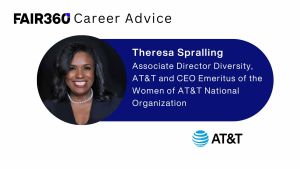Michael Donoghue is Principal of PwC Public Sectors. Donoghue joined PwC’s Public Sector practice in 2005 and has more than 22 years of experience in organizational design and analysis and business process reengineering. A veteran of the U.S. Army, where he served 10 years as both an enlisted soldier and commissioned officer, Michael also leads PwC’s Veterans Affinity Network, a group of more than 1,000 veterans, military spouses and allies supporting veterans both within the firm and nationwide.
Veterans are used to structure and direction, and those coming out of the military are often overwhelmed by the number and variety of civilian job opportunities. What would you tell a transitioning service member in need of some initial direction
There are a few basic questions I always ask veterans to help them narrow down the industries and career paths for which they might be a fit. Right out of the gate, veterans absolutely have to understand the type of organization they want to be part of, from a corporate culture point of view. Are you looking for a collegial atmosphere or a hierarchical structure where you can advance rapidly A large company or a small one
From there, what are your priorities Advancement, a specific kind of work Do you prefer to work independently or with a team What are your travel limitations and location preferences You can quickly narrow it down and target your desired organizations by asking these very simple questions. Use your military experience to determine what excites you and aim to join an organization that meets your criteria.
Veterans often feel unsupported, underprepared and under-educated when they leave the military. To them, failure is a scary but entirely possible scenario. What’s your advice
Understand what you want to do and then leverage your network to determine the key milestones you need to hit. Using the information above, target a company or industry and build a network. PwC’s Veterans Affinity Network, for example, provides opportunities for new veterans to create connection points with other employed veterans, as well as civilian professionals.
Once you’ve done this, just go after the career you think you want. Half measures will never get you there and you will quickly realize if it’s the right fit for you and your family. Commit yourself to your goal until it’s accomplished, and don’t be afraid to put yourself out there. Learn every day and leverage those learnings along with your military leadership skills to drive tasks, projects and programs to achieve your goals.
What is your advice on giving your all How can veterans become and stay motivated
The first step to giving your all is to get the basics down. I can’t express how critical it is to sit down with your leaders and understand your role, your responsibilities and the nuances of the project itself.
Remember it took a while to find success in the military via training and study, so employ those same tactics and seek to learn and master the basics as quickly as you can.
Once you’ve shown your commitment to the organization, develop an action plan to achieve your goals. A good organization will provide opportunities for you to share your goals with your leaders and peers, and as you demonstrate your commitment to the organization, your network will help you reach and achieve your goals.
Every day, you need to get yourself psyched up and commit to delivering for your client, team and organization. Business isn’t an individual sport it’s a team one, and giving your all is about playing as a team and taking care of your peers.
Many veterans struggle to navigate roadblocks or mistakes in a corporate setting. How can they learn from their mistakes, overcome roadblocks and get back on track
Folks coming out of the military have a good decision-making paradigm and know when they need to ask questions. Leverage your network proactively to seek guidance or identify areas for personal improvement. Consult, consult, consult.
When you do make a mistake, do a root cause analysis. What was the initial mistake Was it major or minor Who did it affect, and what can you do to fix and avoid repeating it We all make mistakes, but there are steps you can take to make them as minor as possible.
When faced with a roadblock, leverage your network. It’s critical in helping you see problems from a different point of view, and sometimes the roadblock you perceive to be the Great Wall of China ends up being no more than a speed bump.
Many roadblocks are ongoing challenges that won’t be resolved in a single go. Develop a mitigation approach to address your roadblock in an actionable way, then work with your mentor and network to make sure you’re committing to this plan until the roadblock is no longer an issue.
How does feedback delivery differ between the military and in a civilian career What are your tips
The military embraces real-time, direct and constant feedback. It’s important that both veterans and their project managers and/or leaders recognize that veterans have never had to ask for feedback during their military career it’s always been provided frequently and proactively.
There’s an important distinction that veterans should keep in mind when asking for evaluation. Feedback can be perceived as a hassle: it’s associated with paperwork, reviews and measuring performance against KPIs, or key performance indicators (for example, customer service ratings, revenue generation and new business prospecting). Asking for mentorship, however, is another story entirely. Mentorship or coaching is about asking for guidance based on that person’s experiences, and then using those anecdotes to help you improve.
Mentorship is much more valuable in the long run, and the relationship it develops will be long-term no matter where you’re employed.
How important is networking with executives
Networking requires being mission-focused. If you’re working on something that could benefit from an executive’s insight, reach out and ask for advice, mentorship or direction.
Is this someone you want to model yourself after, whether in terms of industry or leadership style Come armed with questions, explain why you’re seeking their advice and be upfront about your goals.
Lastly, networking is all about creating shared value. You’ll gain mentorship and the mentor will be fulfilled by educating the next generation as it comes up the ranks.
How can veterans build their executive presence
Be yourself. Many veterans develop great leadership skills through the military. If you’re confident in your ability to take charge, leverage it and present your true self. The best leadership and the only kind that works is authentic leadership, and placing your team and people before yourself is important.
The last thing you want to do is to be hired into a culture that you aren’t a fit for; you won’t be comfortable nor successful in the long haul.
How can veterans become high potential employees
Check your ego at the door and learn the basics. It’s critical you build a good foundation in any industry, whether it’s construction or consulting. Build your foundation, be humble and do it gleefully. As you ascend the ladder, you’ll earn “street credibility” by starting at the bottom.
This base will help to expedite your leadership capabilities and accelerate your career growth, but don’t expect to go for the top spot quickly. Learn and exercise patience. Become knowledgeable about what your organization does and how, and then adapt your military leadership skills. It takes time, but with the right attitude and action plan, you’ll set yourself up for career success.
















